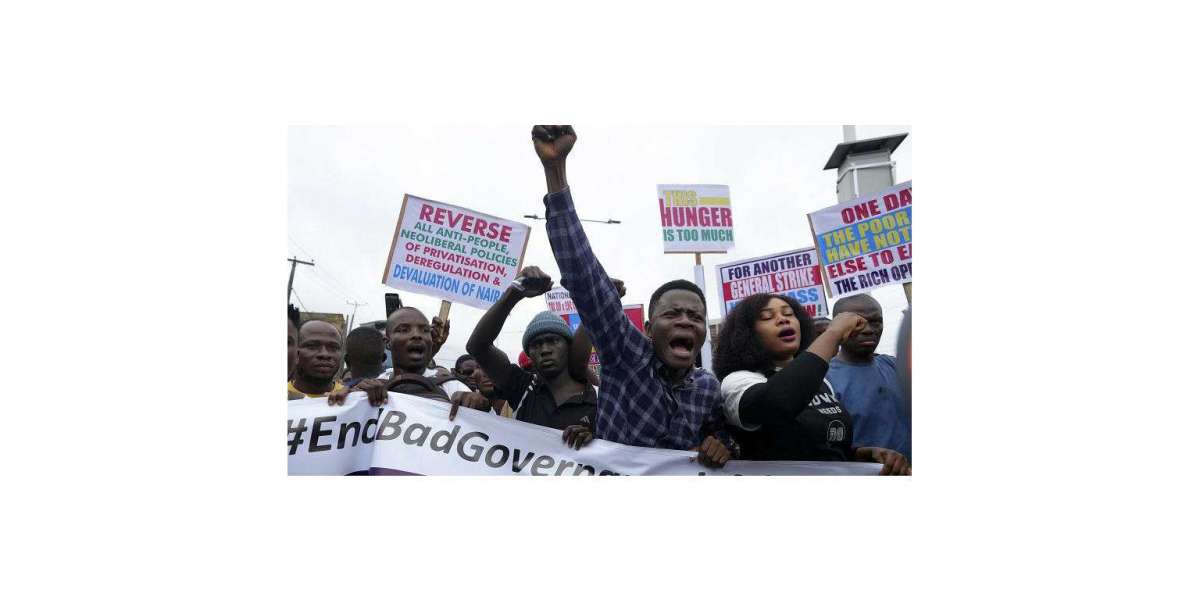Thousands of Nigerians, mostly young people, took to the streets on Thursday to protest against the country's severe cost-of-living crisis, prompting security forces to fire tear gas in several locations. The protests, which were planned for 10 days, demand the reinstatement of gas and electricity subsidies, an end to corruption, and improved security.
In Abuja, a court-ordered restriction on the protest was ignored, leading to police firing tear gas at protesters near the Presidential Villa. Similar scenes played out in Bauchi and Borno states, with reports of roadblocks and business closures.
The protests come as Nigeria faces its worst economic crisis in a generation, with soaring prices and widespread poverty. Despite being a top oil producer, Nigeria has some of the world's poorest and hungriest people, with public officials accused of corruption and being among the best-paid in Africa.
Rights groups have raised concerns about a possible clampdown on the protests, with Human Rights Watch warning of a "troubling readiness to stifle dissent." Protest organizers vow to continue until their demands are met, citing the government's failure to address security and economic crises.







